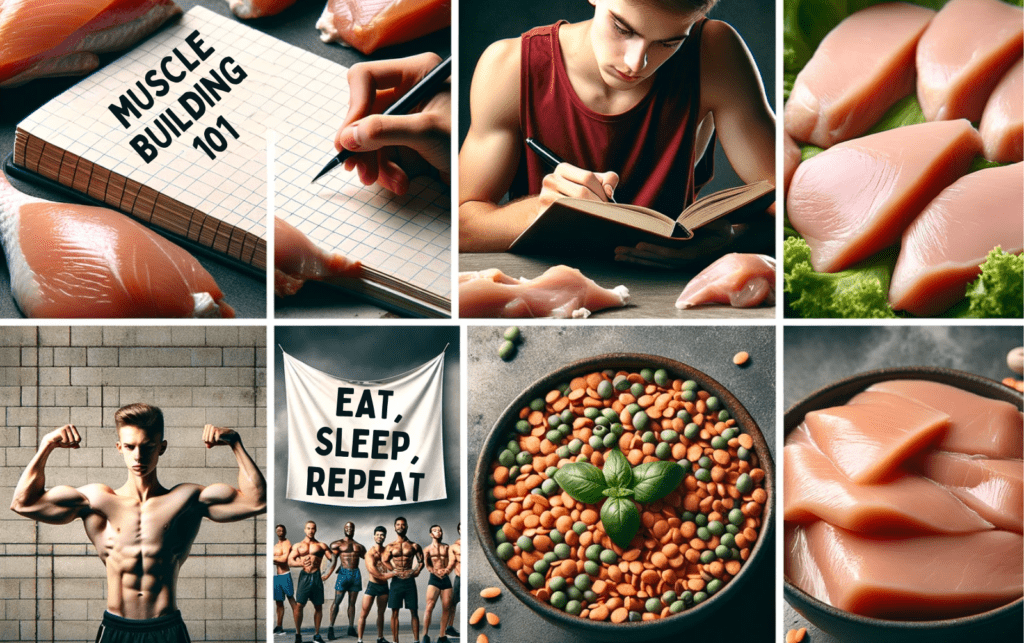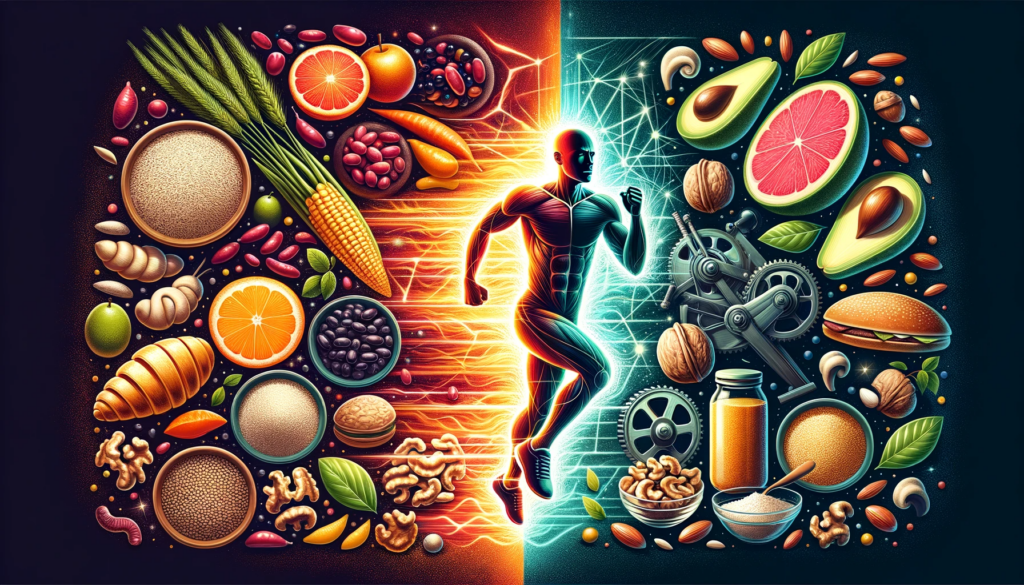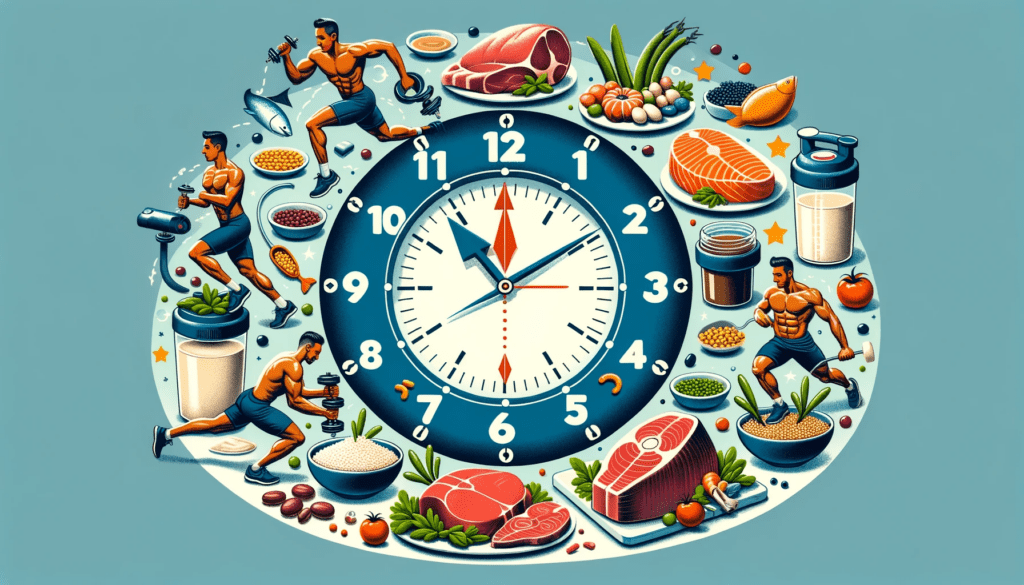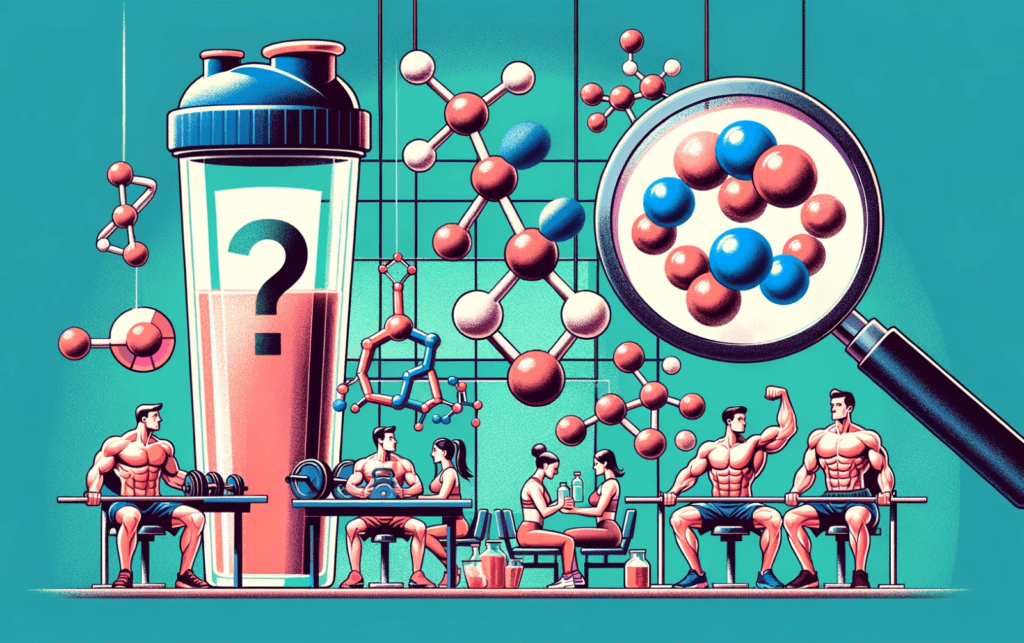Ever wondered if you can build those dreamy muscles without gulping down protein shakes like there’s no tomorrow? Well, you’re not alone!
This guide aims to answer the burning question: Can you truly build muscle without protein?
So, buckle up as we dive into the science, the myths, and the practical tips to help you achieve your muscle-building goals.
Let’s get started!
Table Of Contents
- 1 Key Takeaways
- 2 The Fundamental Role of Protein in Muscle Growth
- 3 The Science Behind Muscle Growth
- 4 Beyond Protein – Other Essential Nutrients
- 5 Protein Intake, Timing, and Muscle Development
- 6 The Best Type Of Training For Muscle Growth
- 7 Risks, Considerations, and Alternatives
- 8 Frequently Asked Questions
- 9 Conclusion
Key Takeaways
| Question/Topic | Answer/Insight |
| Can You Build Muscle Without Protein? | No, but you don’t need it in excess. Around 0.7 grams per pound (or about 1.54 grams per kilogram) of body weight per day is often sufficient. |
| The Role of Protein in Muscle Growth | Protein is the building block of muscles, essential for muscle protein synthesis, repair, and recovery. Quality matters. |
| The Significance of Other Nutrients | Carbs and fats are also crucial. They provide the energy needed for workouts and muscle recovery. |
| Risks and Benefits of Varied Protein Intake | Too much protein can lead to kidney issues, while too little can hinder muscle growth. Balance is key. |
| Optimal Protein Intake | Varies based on individual needs, but generally, 0.7 grams per pound (or about 1.54 grams per kilogram) of body weight per day is recommended for most people. |
The Fundamental Role of Protein in Muscle Growth
Ever heard the saying, “You are what you eat?” Well, when it comes to muscle growth, protein is the star of the show.
But what exactly is protein, and why is it so crucial for muscle development?
Let’s break it down.
What Exactly is Protein?
Before we dive into the complexities of muscle growth, let’s start with the basics. What is this magical nutrient we call protein?
Protein is more than just a word you see on nutrition labels; it’s a complex molecule made up of amino acids.
Think of it as the Lego blocks of your body, especially your muscles.
Why Protein is the Cornerstone for Muscle Development
Protein plays a critical role in muscle protein synthesis, which is the process your body goes through to build new muscle tissue.
Contrary to popular belief, working out doesn’t create tiny tears in your muscles that need to be repaired.
Instead, muscle growth occurs due to an increase in contractile units within the muscle fiber, either in series or in parallel. This is primarily driven by mechanical tension.
Protein and Muscle Growth
So, we’ve established that protein is essential, but how does it directly contribute to muscle growth?
The common belief is that more protein equals more muscle, but the reality is a bit more nuanced.
Protein does play a pivotal role in muscle growth, but it’s not the only factor. Calories, workout intensity, and even your genetics play a part.
The Science Behind Muscle Growth

You’ve heard the buzz about protein, but what does science have to say?
Is protein the only game in town, or can you still achieve muscle growth on a low-protein diet? And how much protein is really optimal?
Let’s dig in.
Can You Achieve Muscle Growth on a Low-Protein Diet?
Curious about whether you can still bulk up without chugging protein shakes all day? You’re not alone.
The answer is a bit complicated. While protein is essential for muscle growth, it’s not the only factor.
While protein is a key player in muscle development, it’s not the sole contributor. Your caloric intake, workout regimen, and genetic predisposition also weigh in.
Research indicates that a diet with less protein can still yield substantial muscle growth—up to 80% of your potential—if balanced with adequate calories and specific training methods like hypertrophy.
How Much Protein is Optimal for Muscle Growth?
So you’re committed to building muscle, but how much protein do you really need?
The optimal protein intake can vary based on individual needs, but as a general guideline, around 0.7 grams per pound (or about 1.54 grams per kilogram) of body weight per day is often recommended.
This aligns with various scientific studies and provides a balanced approach that minimizes risks.
Beyond Protein – Other Essential Nutrients

Protein may be the star of the show, but it’s not a one-man act. Carbohydrates and fats play crucial roles in muscle development, too.
Let’s give these nutrients the spotlight they deserve.
Fueling Up with Carbohydrates
Ever felt sluggish during a workout and wondered why? It might be because you’re low on carbs.
Carbohydrates are your body’s primary source of energy.
When you’re lifting weights or doing any form of exercise, carbs fuel your muscles and help you push through those last few reps.
And let’s not forget that they also play a role in muscle recovery.
So, don’t shy away from whole grains, beans, fruits, and vegetables.
The Importance of Healthy Fats
If carbs are the fuel, think of fats as the oil that keeps the engine running smoothly.
Healthy fats, particularly omega-3 and omega-6 fatty acids, contribute to muscle health in several ways.
They help with hormone production, reduce inflammation, and even aid in muscle recovery.
So, don’t skip on the nuts, seeds, fatty fish, olive oil, and avocados.
Protein Intake, Timing, and Muscle Development

You’ve got the what, the why, and the alternatives. Now let’s talk about the how.
How should you time your protein intake for maximum muscle growth, and what are some practical tips for those who want to vary their protein intake?
Let’s get into it.
The Dynamics of Protein Intake and Timing
Ever heard the saying, “Timing is everything?” Well, it applies to protein intake too.
Muscle Protein Synthesis (MPS) is stimulated not just by what you eat but also when you eat it.
Consuming protein both before and after your workouts can maximize MPS. But that’s not all; spreading your protein intake evenly throughout the day is even more beneficial.
So, whether you’re into plant-based or animal-based proteins, timing matters.
Practical Tips for Muscle Building with Varied Protein Intake
So you’re not a fan of protein shakes or maybe you’re on a budget. No worries, you can still build muscle.
The key is to focus on whole food sources of protein like lean meats, fish, and legumes.
You can also supplement with plant-based proteins like quinoa and lentils. The idea is to meet your protein targets without relying solely on supplements or high-protein foods.
The Best Type Of Training For Muscle Growth
If you want to get the most out of your workouts, you need to be following a structured resistance training plan.
Here are the five principles you need to follow to allow for the best gains possible.
| Factor | Description |
| Train To Failure | The most crucial factor for muscle growth. Mechanical tension is the primary driver, which means your muscles need to slow down involuntarily because they can’t produce any more force. Training to failure initiates the signals necessary for muscle growth. |
| Apply Progressive Overload | Training to failure is essential, but you also need to do more reps or move more weight than before. Adding more sets isn’t progressive overload; you need to either increase the weight or the number of reps. |
| Pick The Best Exercises | Choose movements that are best suited for your structure and effectively train the target muscles. For example, if barbell benching isn’t effective for your chest, opt for movements like machine presses. |
| Train In The 5-8 Rep Range | All reps ranging from 5-30 can build muscle, but higher reps require more recovery time. Stick to the 5-8 rep range for optimal results. |
| Execute Each Movement Properly | Proper execution is crucial. Move the weight with as much force as possible while maintaining complete control during the movement. Incorporate a slow lowering phase with a slight stretch in the bottom, and you’re set. |
That’s pretty much it!
- Pick the best movements for your structure.
- Train to complete muscular failure in the 5-8 rep range.
- If you do more than 8 reps, add weight the following week.
- If you do less than 8, perform the same weight again the next week but beat your reps.
- Perform each exercise you do with the proper execution.
- Repeat forever!
This is the best way to train for muscle growth.
Of course, your body needs a calorie surplus and at least 0.7 grams of protein per lb of body weight.
Do those two things and you’re set!
Risks, Considerations, and Alternatives

You’re pumped, you’re motivated, and you’re ready to down that protein shake.
But wait, are there any risks you should be aware of? And what if you’re not into the whole high-protein thing?
Let’s explore.
Is Taking in Excessive Protein Safe?
So you’re thinking, “More protein equals more muscle, right?” Not so fast.
While protein is essential for muscle growth, too much of it can lead to some health issues.
We’re talking kidney problems, digestive issues, and even an increased risk of certain cancers. The key is balance.
Stick to the recommended 0.7 grams per pound (or about 1.54 grams per kilogram) of body weight per day to stay on the safe side.
Bulking on Lower-Protein Diets
Maybe you’re vegan, or perhaps you’re just not a fan of meat. Whatever the reason, you’re wondering if you can still bulk up on a lower-protein diet.
The answer is yes, but it requires some strategic planning. Focus on calorie-dense foods and make sure you’re getting enough fats and carbs to fuel your workouts.
You can also engage in hypertrophy training to maximize muscle growth without relying heavily on protein.
Frequently Asked Questions
Conclusion
So there you have it, a comprehensive guide to building muscle with or without heaps of protein.
Whether you’re a meat lover or prefer to get your nutrients from plants, the key takeaway is balance.
Focus on a well-rounded diet, proper timing, and a solid workout plan, and you’ll be flexing those muscles in no time.
Until next time,
-Dante
Regarding a 195 pound male with CKD.
How many carbs should he eat if he is only aloud 80 grams of protein a day to gain muscle ?
Hey Rob this is a great question!
I would make sure you’re getting at least 20-30% of your body weight from fats and then the rest of your calorie surplus would be carbs.
So for you, assuming you’re eating at least 3000 calories to build muscle.
Protein 85
Fats 50
Carbs 550
Hopefully this helps but definitely let me know if you have anymore questions!